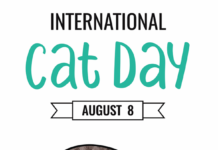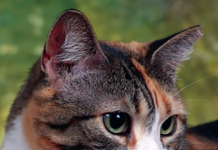Q. My kitty was just diagnosed with bladder stones, and her veterinarian recommended a high-salt diet to make her drink more in an effort to dilute her urine and prevent future bladder stones. While I understand why we may want to make her drink more, I’m worried about the effects of a high-salt diet on her heart because I know that people with heart disease shouldn’t have much salt. Can you provide advice?
A. First, I’m very sorry to hear about your kitty’s urinary bladder stones. These can be a pain (literally!), and managing them can take time and dedication, but I am confident that with your efforts on her behalf, your kitty will do well. Please continue to work with her veterinarian to assure adequate therapy for this very common feline disease. Dilution of urine by promoting increased salt in the diet is a common and reasonable component of the management of bladder stones in cats.
I understand your concern regarding the effects of a high-salt diet on your kitty’s heart because studies have shown that high-salt diets can be dangerous for people with certain types of heart and kidney disease. This is primarily due to the fact high-salt diets promote the retention of water in the kidney, and this increased water retention increases the volume of blood in the blood vessels.
As many types of heart disease are characterized and/or exacerbated by increased volume of blood in the blood vessels, increasing the volume of blood further by increasing dietary salt (primarily sodium) may worsen heart disease and/or promote an elevation in blood pressure (hypertension). Hypertension is a serious disease in its own right, and it may predispose to or worsen a number of diseases of the heart, blood vessels and kidneys in both people and animals.
With the knowledge of these facts, there is reasonable concern regarding the effects of using an increased dietary salt intake to promote increased thirst in cats with bladder stones. We certainly do not wish to harm the heart, blood vessels and kidneys of cats while trying to decrease the likelihood of bladder stone formation. That would be like robbing Peter to pay Paul. And what a price that would be!
Fear not, though. A number of studies have been carried out to answer the all-important questions of what a high-salt diet will do to the heart and kidneys of cats. These studies suggest that high-salt diets containing the amount of salt usually recommended for the management of bladder stones in cats does not result in hypertension or any significant heart or kidney problems.
It is important to note that these studies were performed in older adult cats with normal kidney and heart function, with no history of hypertension. Whether these results translate to all cats remains to be determined, but older cats are generally more prone to heart and kidney disease and to hypertension, so it is quite possible that these results will be applicable to all healthy adult cats. Studies to answer this question are ongoing.
So, as far as we know, if your kitty has normal heart and kidney function and does not have hypertension, there is no evidence to suggest that increasing her salt intake to the levels usually recommended for the management of her urinary bladder stones will cause her any harm. Of course, you will have to work closely with her veterinarian to monitor her progress as you move forward, but I do not think that you need to worry about the effects of this diet on your baby’s kidneys, blood vessels and heart, as long as they are healthy to start with.
I hope this is helpful, and please keep us up to date regarding how she is doing.
Oh, could you pass the salt, please? —Best regards, Elizabeth ❖



